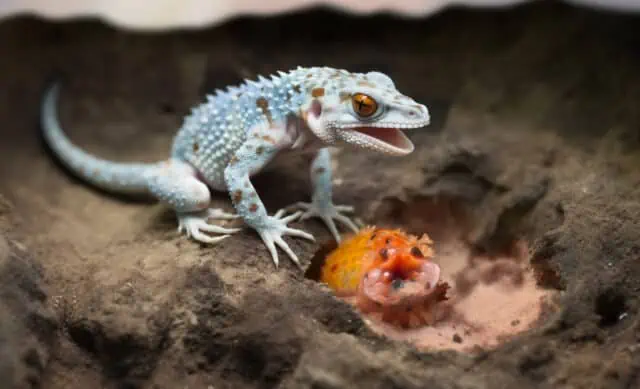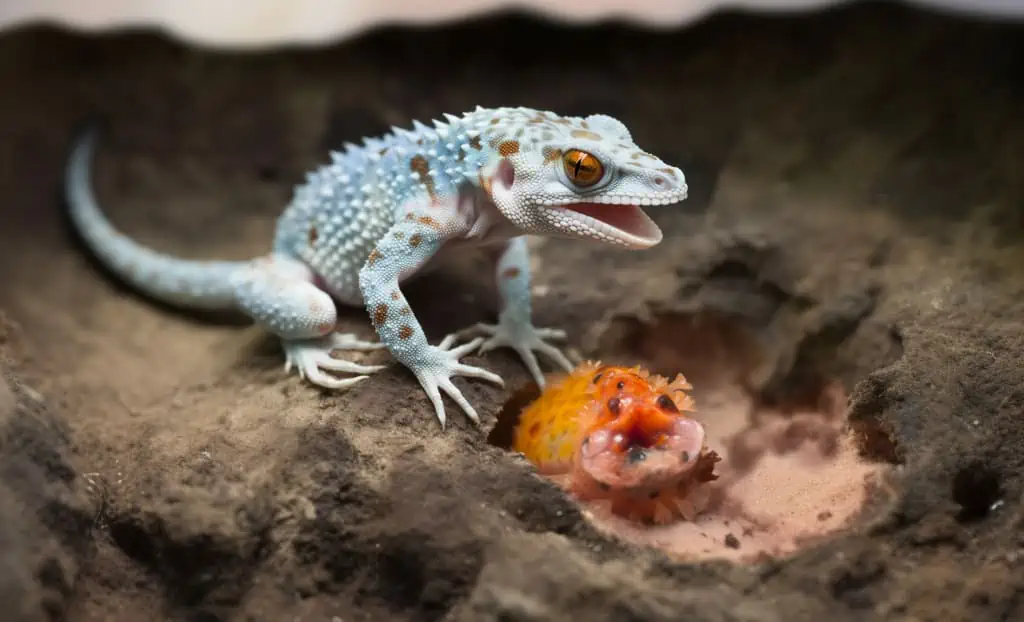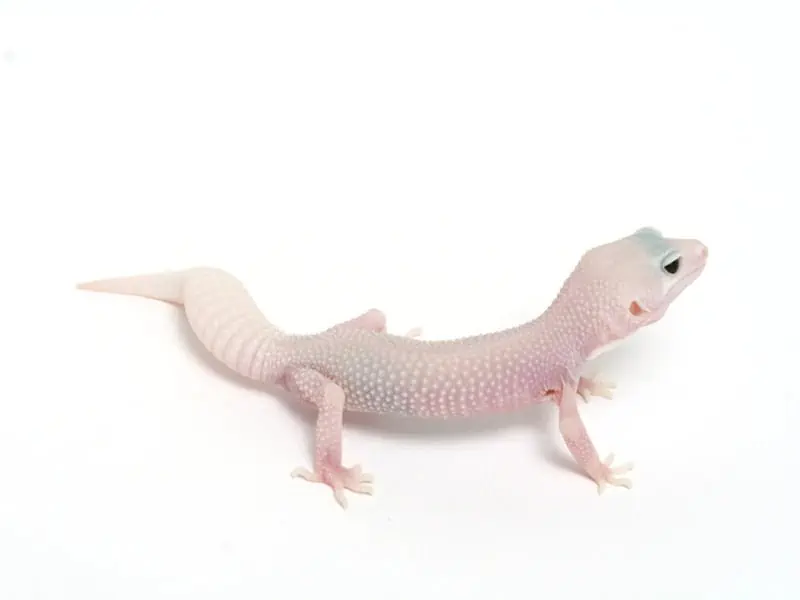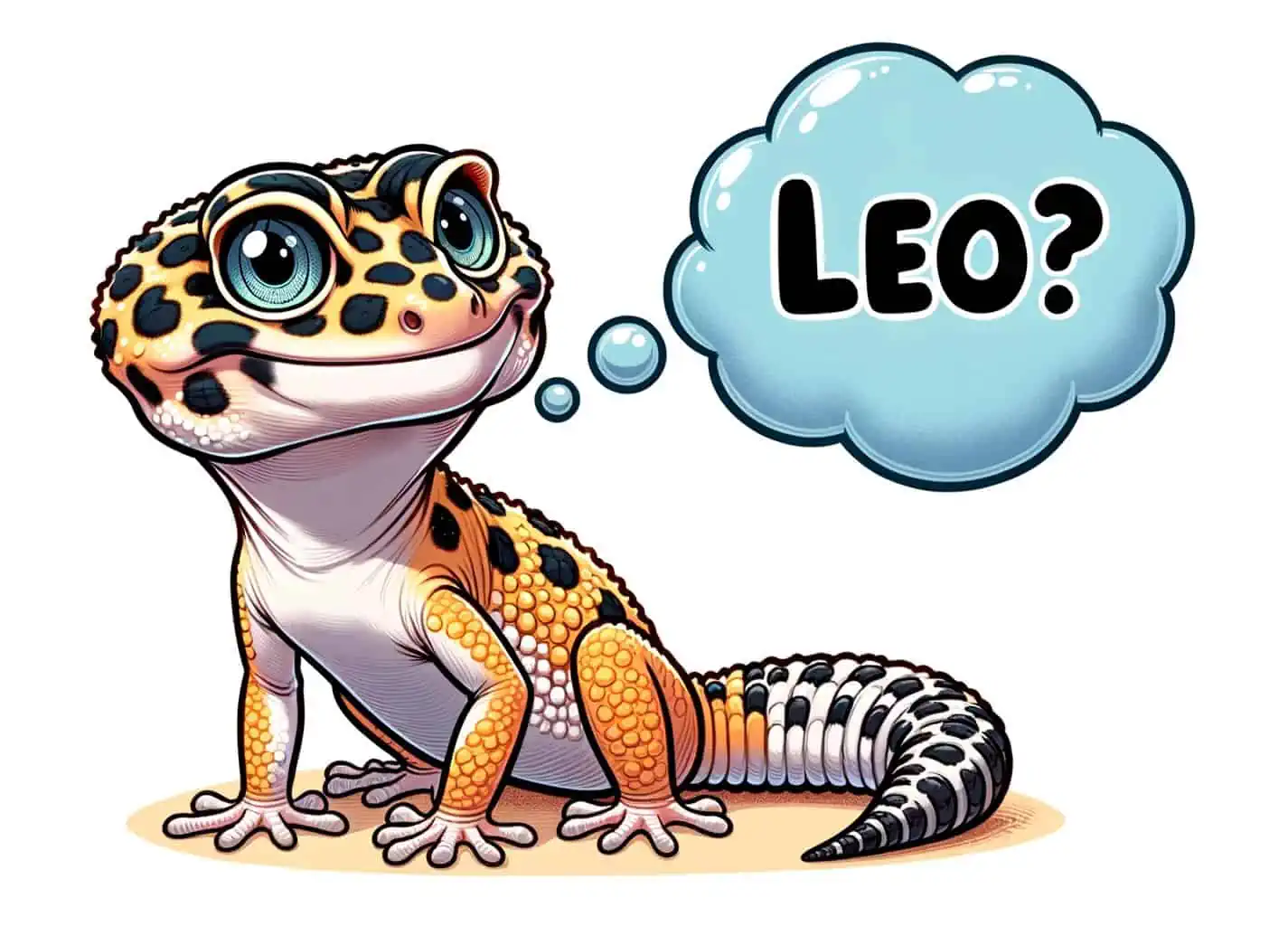Tokay Geckos are vibrant, fascinating creatures that have made a unique place in the hearts of reptile enthusiasts worldwide. They’re known for their stunning coloration, size, and nocturnal habits. As with any pet, maintaining their health is crucial, and this includes keeping them free from parasites – a common concern for gecko owners.
This article is a comprehensive guide designed to educate you about parasites in Tokay Geckos, how to identify them, and practical measures to keep your little reptilian buddy healthy. Whether you’re a first-time gecko owner or an experienced herpetologist, we aim to provide you with useful, practical information to help you deal with these pesky invaders.
Parasites in Tokay Geckos
Parasites are organisms that live on or in a host organism and get their food from or at the expense of their host. In the case of our Tokay Geckos, these parasites could be external (ectoparasites) such as mites and ticks, or internal (endoparasites) like worms and protozoa.
Parasitic infections can be a real headache for Tokay Gecko owners because these creatures are great at hiding their symptoms. They are prey animals in the wild, so they’ve evolved to hide signs of weakness or sickness to avoid attracting predators. But don’t worry – with a little knowledge and a keen eye, you can spot the signs of parasitic infection early and take steps to protect your pet’s health.
Understanding how your Tokay Gecko can get infected is the first step in parasite prevention. Parasites often invade when their immune system is compromised, such as during periods of stress or illness. They can also be introduced through contaminated food or water, or from contact with an infected animal.
In captivity, parasitic infections often occur due to improper care or unsanitary conditions. Overcrowding, poor diet, incorrect temperature or humidity, and lack of clean water can all contribute to a weakened immune system, making your Tokay Gecko more susceptible to parasites.
Parasites can cause a variety of health problems, from minor skin irritations to severe internal complications. The good news is, with proper care and regular check-ups, you can keep these unwelcome guests at bay and ensure a healthy, happy life for your Tokay Gecko.
Common Parasites in Tokay Geckos: Types and Identification
Recognizing potential parasites that could affect your Tokay Gecko is a vital part of proactive pet care. Let’s discuss some of the most common ones and how to identify them.
- Mites: These tiny external parasites are usually black, red, or white. They are visible to the naked eye, often seen around the eyes, ears, and under the scales of your gecko. Mites can cause severe itching, irritation, and in extreme cases, anemia.
- Ticks: Ticks are larger than mites and easier to spot. They attach themselves to your gecko’s skin and feed on its blood. Ticks can cause skin damage, inflammation, and can sometimes transmit diseases.
- Roundworms: These internal parasites live in the gecko’s digestive tract. If your gecko has roundworms, you might notice a decrease in appetite, weight loss, or diarrhea. In some cases, roundworm eggs might be visible in the gecko’s feces.
- Protozoa: Protozoa such as coccidia and giardia are microscopic parasites that live in the gecko’s intestines. Signs of infection include diarrhea, weight loss, and lethargy.
- Nematodes: These worm-like parasites affect the gecko’s lungs and trachea. Symptoms can include difficulty breathing, wheezing, or a frothy mouth.
- Tapeworms: Tapeworms live in the intestines and can cause weight loss, diarrhea, and a bloated appearance.
- Flukes: These are flat, leaf-like parasites that invade the gecko’s liver, gallbladder, and intestines. Signs include weight loss, lethargy, and changes in fecal matter.
It’s important to note that you might not always see visible signs of these parasites. Regular veterinary check-ups and fecal exams are essential to detect and treat these parasites early.
Impact of Parasites on Your Tokay Gecko’s Health
The health of your Tokay Gecko can be seriously compromised by parasitic infections. The severity of the impact will often depend on the type of parasite, the intensity of the infection, and the overall health condition of your gecko.
Physical Impact: Parasites, particularly external ones like mites and ticks, can cause considerable discomfort to your pet. Persistent itching, skin irritation, and subsequent infections from scratching are common physical symptoms. In more severe cases, blood-sucking parasites can lead to anemia, showing as paleness in the gecko’s skin and lethargy.
For internal parasites, the situation can be more complex. Depending on where these parasites reside, they can cause inflammation and damage to organs like the intestines, lungs, or liver. Your gecko might show symptoms like difficulty breathing (from lung parasites), diarrhea or irregular fecal matter (intestinal parasites), or general malaise and weakness (if the liver is affected).
Behavioral Impact: A gecko dealing with parasites can show significant changes in behavior. Decreased appetite, lethargy, restlessness, or unusual aggressiveness can all be signs of a parasitic infection. If the parasites cause discomfort, your gecko might show more frequent and frantic shedding behaviors or excessive self-grooming. In the case of intestinal parasites, your gecko might pass unusually smelly or irregular feces.
Long-term Health Impact: If not treated timely, parasites can have long-term impacts on your gecko’s health. Chronic parasitic infections can lead to malnutrition, due to decreased appetite and the parasites feeding on the gecko’s nutrients. This can stunt growth in young geckos and cause weight loss in adults. In severe cases, parasitic infections can even be fatal.
Preventive Measures Against Parasites
Maintaining a healthy environment is a crucial step in preventing parasitic infections. Here are some measures you can take:
Maintain a Clean Environment: Keep your gecko’s enclosure clean. Regularly remove waste, uneaten food, and shed skin. Disinfect the habitat regularly to kill any potential parasites.
Proper Hygiene: Wash your hands before and after handling your gecko to prevent the transmission of parasites. If you own multiple reptiles, avoid cross-contamination by using separate equipment for each animal.
Quality Diet: Feed your Tokay Gecko a varied and balanced diet. Providing your gecko with quality food will help boost their immune system and better equip them to fight off potential parasitic invaders.
Stress Reduction: Minimize stress by providing an appropriate environment that caters to their natural behaviors and needs. This includes having proper hiding spots, climbing surfaces, temperature gradients, and humidity levels.
Quarantine New Pets: When introducing a new reptile into your home, it’s essential to quarantine them for a few weeks. This gives you time to observe the new pet for any signs of parasites, which could potentially infect your existing pets.
Regular Vet Check-ups: Regular veterinary examinations, including fecal tests, are essential to detect any parasites. Early detection leads to more effective treatment and a better prognosis.
Home Remedies for Treating Parasites in Tokay Geckos

While severe or persistent parasitic infections require professional veterinary care, some home remedies can help manage minor parasite issues or serve as interim solutions while you arrange a vet visit.
- Natural Mite Treatments: Some gecko owners have found success in using natural products to deal with minor mite infestations. These include applying a diluted solution of a reptile-safe mite spray or soaking the gecko in warm water. Remember, though, that these methods only address the symptoms and not the root cause. It’s important to clean the entire habitat thoroughly and replace any substrate to fully eradicate mites.
- Good Hygiene Practices: Regularly clean your gecko’s enclosure, including decor and substrate. This simple step can help control and prevent many external parasites.
- Healthy Diet: A balanced diet can boost your gecko’s immune system, helping them better resist and recover from parasitic infections. Incorporate a variety of insects into their diet and consider gut-loading or dusting insects with supplements for additional nutrition.
- Bathing: For external parasites, a warm bath can provide relief. It can also help hydrate your gecko, which is beneficial if they’re suffering from internal parasites that may cause diarrhea.
Please note: These home remedies should never replace professional veterinary care. They are supplementary measures and may help alleviate symptoms temporarily. If you suspect your gecko has a parasitic infection, always consult with a vet for proper diagnosis and treatment.
When to Consult a Vet: Identifying Serious Parasitic Infections
While minor cases of parasites can sometimes be managed at home, there are times when professional help is necessary. Here are some signs that your Tokay Gecko might need veterinary attention:
- Persistent Parasites: If you’ve tried home remedies and the parasites are still present or if the infestation seems to be getting worse, it’s time to visit a vet.
- Physical Distress: If your gecko appears visibly distressed, shows signs of pain, or has trouble moving, this could indicate a serious parasite problem.
- Behavioral Changes: Changes such as loss of appetite, lethargy, aggression, or unusual behaviors can all be signs of a severe parasitic infection.
- Visible Signs of Illness: Symptoms like weight loss, changes in feces, excessive shedding, difficulty breathing, or skin changes could indicate an internal parasitic infection.
- Unresponsiveness to Home Treatment: If your gecko isn’t responding to home treatments or their condition is deteriorating, immediate veterinary intervention is necessary.
When it comes to parasites, early detection and treatment can make a significant difference in your gecko’s prognosis.
Conclusion
Being a responsible Tokay Gecko owner involves keeping an eye out for any signs of trouble, including parasites. These unwelcome invaders can cause a host of health issues, but with proper care and attention, they can be managed effectively.
Remember, your gecko’s health depends largely on the quality of care you provide. Regular cleaning, a balanced diet, stress management, and routine vet visits can go a long way in preventing parasites and ensuring a long, healthy life for your scaly friend.
Parasites may be a common concern, but they don’t have to be a constant worry. With the right knowledge and resources, you can create a safe, healthy environment for your Tokay Gecko.
So, let’s embrace the challenge, learn from it, and provide the best care for our beloved geckos. After all, seeing them thrive is a rewarding experience in itself.
Frequently Asked Questions (FAQs):
How often should I get my Tokay Gecko checked for parasites?
Regular vet check-ups are crucial for your gecko’s health, including parasite detection. A general rule of thumb is to schedule check-ups twice a year, but more frequent visits may be necessary for young, old, or immune-compromised geckos.
Can my Tokay Gecko get parasites even if it’s always in its terrarium?
Yes, your gecko can still get parasites even if it stays in its terrarium. Parasites can be introduced through contaminated food, water, or new additions to the terrarium like plants or decor.
Can parasites in my gecko spread to other pets or humans?
While some parasites are specific to reptiles, others can be zoonotic, meaning they can spread to other animals or even humans. Always practice good hygiene when handling your gecko and consult a vet if you have concerns.
My gecko has parasites. Can I treat it solely with home remedies?
While some home remedies can alleviate symptoms or help in mild cases, they cannot replace professional treatment, especially in severe or persistent infections. Always consult with a vet if you suspect a parasitic infection.
Can I use over-the-counter dewormers or mite sprays for my gecko?
It’s best to consult with a vet before using any over-the-counter products. Some can be harmful or ineffective, and they may not address the root cause of the problem.





